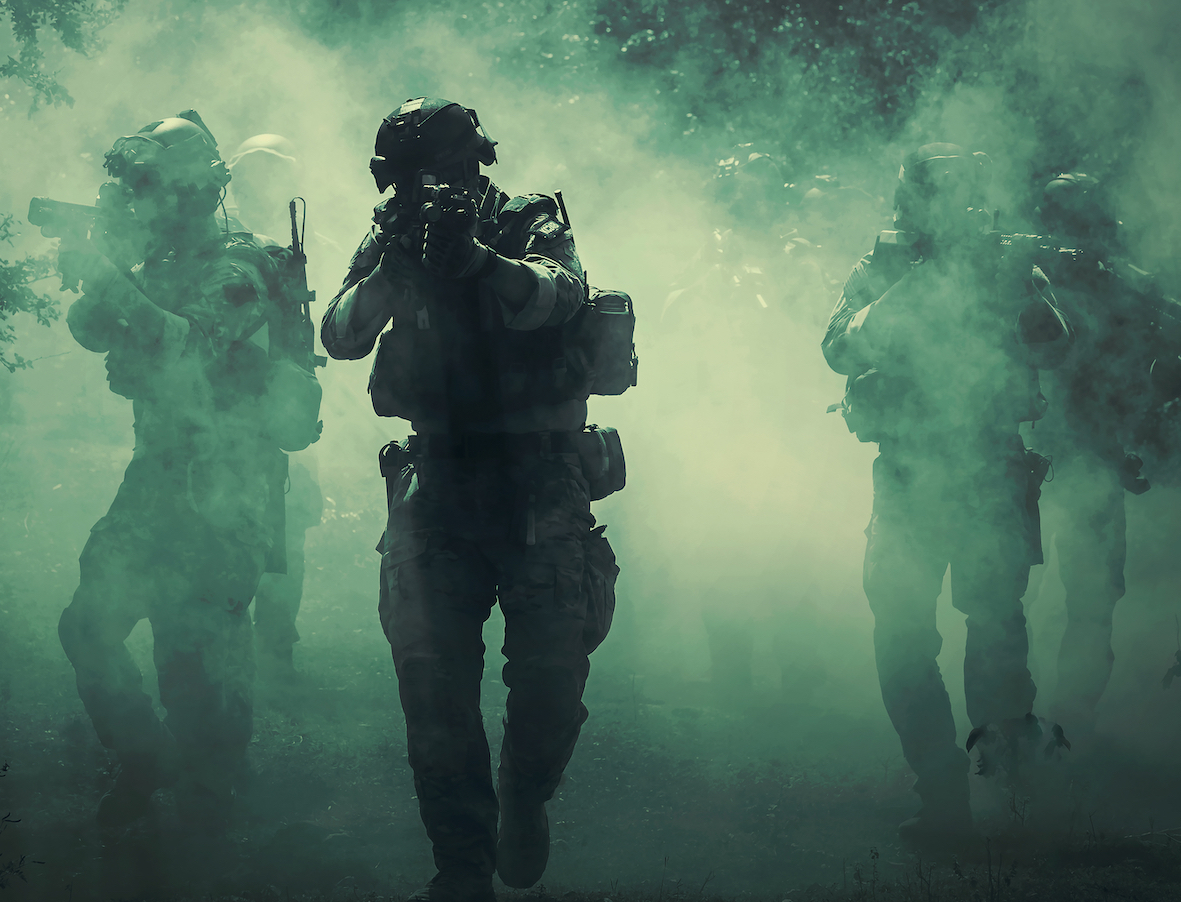The armed forces in the Arab world have assumed multiple roles during the last decade. These include not only maintaining stability and the integrity of the state, and repelling potential threats from terrorism, but also undertaking roles in the judicial sphere, and coordinating and spearheading governmental efforts to contain the spread of COVID-19. The militaries of the Arab world have during the past months been called on to deal with a wide variety crises, these include:
Maintaining National Cohesiveness and Internal Stability: Many Arab states have undergone widespread waves of protests, which in some cases erupted into full scale civil war. In many of these countries, the military stepped in to establish some degree of stability and prevent the state from disintegrating. While there are exceptions to this trend, notably Syria, the militaries of the region have acted as guarantors of stability in most cases.
In Lebanon, for example, the Lebanese armed forces prevented the spillover of clashes in Southern Beirut, in which armed Sunni factions attacked armed Hezbollah targets, to other areas. These clashes, where Sunni factions attacked a funeral procession for a high-ranking member of the “Saraya El Moqawama” brigade of Hezbollah, represented a worrying indication of the level of tensions between the various ethnicities in Lebanon, and threatened cohesion and stability. The thereat to peace in Lebanon is high following the devastating explosion in the port of Beirut, August 2020, which caused widespread popular anger against the government, primarily due to the immunity enjoyed by government officials involved in this case, which has hampered the investigation so far. In this context, the Lebanese armed forces have emerged as the only national institution able to maintain the peace.
Counteracting the threat of violence from extremist and terrorist groups: This has become one of the main challenges Arab armies have to address, as exemplified by the ongoing efforts of the Egyptian armed forces. The last operation carried out by the Egyptian armed forces in this respect resulted in the death of 89 terrorists, while the army seized 73 automatic rifles and 5606 rounds of ammunition, 34 walkie-talkies, a drone with a camera and night vision, as well as a laptop.
The military also identified and destroyed 404 explosive devices planted on roads and other sites, 4 explosive belts, 59 motorcycles, and 52 vehicles that were used to conduct terrorist operations. The Egyptian air force moreover conducted over 200 pre-emptive strikes on vehicles attempting to penetrate the western and southern borders of Egypt, while naval forces also carried out several operations.
Countering the challenge of non-state armed actors: While armed militias are a challenge in some Arab countries, Libya represents an important case due to the presence of foreign fighters on its soil. The withdrawal of these foreign militias has been identified as a necessary condition for Libya’s stability. This aim was endorsed by the Libyan armed forces, and some of the members of the 5+5 military committee. This is especially crucial in order to guarantee stable and safe conditions for the upcoming presidential and parliamentary elections to be held in December 2021. The confrontation between the army and the Houthi militia in Yemen presents another stark example of the challenges faced by the armed forces in some Arab states.
Confronting Crime: In some countries, the armed forces were given judicial jurisdiction over some crimes. In Algeria, for example, President Abdel Meguid Taboun, signed on the 13th of June a proclamation stating the armed forces now have judicial oversight to deal with crimes that affect national security, crimes that are tied to terrorist activities, drug-related crimes, arms smuggling, people smuggling, and crimes against the armed forces.
According to the presidential proclamation, the new judicial powers given to the military police allows them to receive complaints and tips to initiate investigations, as well as collect evidence, search for the perpetrators as long as there is not a judicial investigation ongoing.
Combatting COVID-19: The armed forces in several Arab countries have been called on to help in combatting the spread of COVID-19. They have become the actor of last resort when medical institutions were near collapse, as was the case in Tunisia during the 4th wave of the COVID-19. At the behest of President Kais Saied, the military set up several military field hospitals across Tunisia. The armed forces also conducted patrols alongside the police to help enforce quarantine rules in the areas that were severely affected by COVID-19, helped transport medical personnel to their stations and has carried out awareness raising campaigns on health measures.
Responding to Natural Disasters: Natural Disaster relief is one of the main duties of armed forces, and they have been called upon to respond to the widescale fires that broke out in some Arab countries. The Lebanese armed forces, for example, were called on to combatting forest fires in northern Lebanon, as firetrucks could not access these remote areas. They were assisted by volunteers and civil defense forces, to help keep residential areas safe from these fires. The minister of agriculture, Abbas Mortada, requested that the armed forces intensify their helicopter patrols to prevent the spread of these fires, which had gotten out of control in the Akrom region on the border with Syria.
It appears that mobilizing the armed forces to deal with multiple domestic crises has become an established trend in the Arab world. This highlights the vital and strategic role these forces play on many different levels, and the need to to upgrade their capabilities, as they in many cases remain the ultimate guarantee to domestic and regional stability, in view of the multiple threats and crises many Arab countries are currently facing, which in some cases threaten to overwhelm existing government capabilities.

